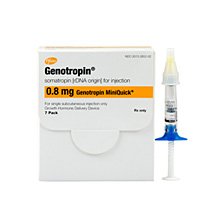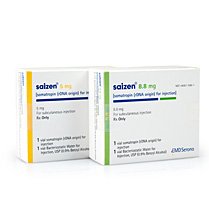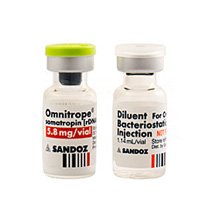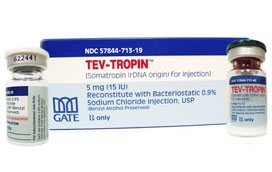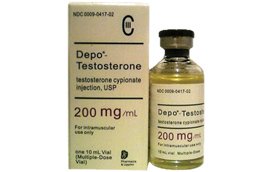Functions of HGH: Impact on the Body and Brain

In the few minutes that human growth hormone stays active in the bloodstream following secretion, it accomplishes multiple essential functions. The impact of HGH on the body and brain is mind-boggling. Growth hormone impacts cell regeneration, brain functions, tissue growth, metabolism, immunity, and even libido.
Among the functions of HGH, we find that it stimulates the liver’s production of insulin growth factor 1 – a hormone that influences every cell in the human body. IGF-1 is a mediator of sorts of many of the functions of human growth hormone.
HGH receptor cells can be found throughout the brain and the body. That is why the HGH functions in the human body impact more than just growth. HGH brain receptors help keep your memory sharp and your emotions in a state of well-being.
Without proper HGH function, the body becomes subject to physical and mental break down. Because of its role in cellular reproduction, HGH keeps the skin, organs, muscles, and bones from decline. Lower HGH levels decrease the effectiveness of the metabolism, leading to weight gain and energy loss. When the brain does not receive an adequate supply of human growth hormone, cognitive functions begin to suffer.
How the Physiological Functions of HGH Influence Health and Well-being
Physiological functions are those that often occur without our awareness – such as immune strengthening, metabolism, glucose uptake, and hormone regulation. HGH function in the body does not confine itself to only one area. Its impact is felt in many ways:
- Metabolism – HGH stimulates the synthesis of protein and the breakdown of lipids (fats). It helps process carbohydrates so that what you eat turns into fuel (energy) and not excess fat.
- Immunity – growth hormone stimulates proliferation of T and B cells. The body fights off invading germs more efficiently, and healing abilities improve.
- Cell Regeneration – HGH and IGF-1 stimulate cell production crucial for the maintenance of collagen levels, skin, bone, muscle, tissue, hair, internal organs, and nails.
- Insulin Resistance – HGH deficiency is often associated with insulin resistance. Metabolic syndrome markers linked to low HGH levels predispose a person to type 2 diabetes, cardiovascular disease, stroke, and other serious health conditions.
- Libido – HGH therapy helps improve vaginal lubrication in women, erectile functions in men, and sexual desire, arousal, and pleasure for everyone.
These functions of HGH hormone help to reduce the risk of many age-related health conditions.
The Many Ways the Functions of HGH Impact Physical Appearance
How you look depends mainly on the body’s HGH hormone function in later years. By the time most people reach thirty, the pituitary gland begins to decrease growth hormone production. That often coincides with the first signs of crow’s feet and grey hairs.
As the HGH effects on body appearance begin, we often notice premature aging long before a person expects to look old. A decline in collagen caused by poor cellular regeneration leads to the thinning of the skin’s layers. Sagging, cellulite, and wrinkles appear, followed by age spots and uneven pigmentation.
Weight gain and muscle decline turn a once toned body into a flabby mess. Hair may turn grey, become thin and brittle, or even disappear. Balding in men and women is common in severe cases of GH deficiency. The functions of HGH will help to reverse these changes – bringing a more youthful and toned appearance.
Cognitive and Emotional Functions of HGH
Although these are changes that you will not see, the functions of growth hormones on the brain are some of the most important of all. If you are having trouble sleeping at night HGH decline may be to blame. If you are moody, depressed, or withdrawing socially, check your growth hormone levels.
Here are the ways HGH impacts your mental and emotional state:
- Learning – HGH secretion during sleep helps the brain process all it learned during the day
- Focus – HGH improves concentration so that you can focus on the task at hand
- Memory – growth hormone not only helps commit new information to memory, but it improves recall
- Processing – mental calculations become faster and sharper
- Emotions – HGH helps balance feelings of well-being, decreasing mood swings and feelings of depression
For more information on the functions of HGH hormone and how growth hormone deficiency may be impacting your life, contact Greenberg Health. We offer free, confidential consultations to men and women throughout the US. Local diagnostic testing services and affordable treatment options are available.


















 Norditropin
Norditropin